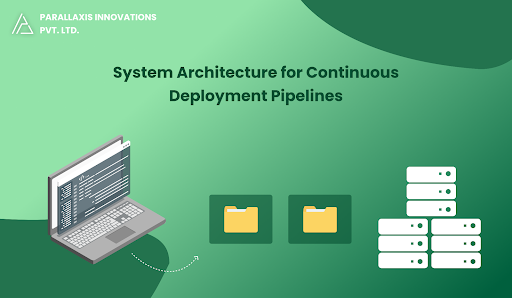In the fast-paced world of software development, technical debt is a common challenge that can hinder progress and innovation. It accumulates when teams priorities speed and immediate results over long-term quality and maintainability. However, the adoption of DevOps practices can significantly help organisations reduce and prevent technical debt. In this blog post, we will explore how DevOps principles and practices contribute to managing technical debt effectively.
Understanding Technical Debt
Technical debt refers to the trade-offs made during the software development process when shortcuts are taken to meet deadlines or deliver features quickly. While these shortcuts may provide short-term benefits, they can lead to long-term consequences, such as increased maintenance costs, reduced productivity, and a decline in code quality. Addressing technical debt is crucial for maintaining a sustainable development process and ensuring the long-term success of software projects.
The Role of DevOps in Managing Technical Debt
DevOps is a set of practices that combines software development (Dev) and IT operations (Ops) to improve collaboration, increase efficiency, and enhance the quality of software delivery. By fostering a culture of collaboration and continuous improvement, DevOps can play a vital role in reducing and preventing technical debt. Here are several ways DevOps achieves this:
1. Continuous Integration and Continuous Delivery (CI/CD)
DevOps emphasises the importance of CI/CD pipelines, which automate the process of integrating code changes and deploying them to production. This practice helps reduce technical debt by
- Catching Issues Early: Automated testing within CI/CD pipelines allows teams to identify and address bugs and regressions early in the development process, preventing the accumulation of technical debt.
- Faster Feedback Loops: Continuous feedback from automated tests enables developers to make informed decisions and address potential issues before they escalate.
2. Collaboration and Communication
DevOps fosters a culture of collaboration between development and operations teams, breaking down silos and encouraging open communication. This collaboration helps reduce technical debt by:
- Shared Responsibility: When both development and operations teams are involved in the software delivery process, they share the responsibility for code quality and maintainability, leading to better decision-making.
- Cross-Functional Teams: DevOps encourages the formation of cross-functional teams that include members with diverse skill sets. This diversity promotes a holistic approach to problem-solving and reduces the likelihood of shortcuts that lead to technical debt.
3. Infrastructure as Code (IaC)
Infrastructure as Code (IaC) is a DevOps practice that involves managing and provisioning infrastructure through code. IaC helps reduce technical debt by:
- Consistency and Reproducibility: By defining infrastructure in code, teams can ensure consistent environments across development, testing, and production. This reduces configuration drift and minimises the risk of issues arising from manual configurations.
- Version Control: Treating infrastructure as code allows teams to version control their infrastructure changes, making it easier to track modifications and roll back if necessary.
4. Automated Testing and Quality Assurance
DevOps emphasises the importance of automated testing and quality assurance throughout the development lifecycle. This focus on quality helps prevent technical debt by:
- Comprehensive Test Coverage: Automated tests, including unit tests, integration tests, and end-to-end tests, help ensure that code changes do not introduce new issues. This proactive approach reduces the likelihood of accumulating technical debt.
- Continuous Monitoring: DevOps encourages continuous monitoring of applications in production, allowing teams to identify performance issues and technical debt early and address them promptly.
5. Emphasis on Continuous Improvement
DevOps promotes a culture of continuous improvement, encouraging teams to regularly reflect on their processes and identify areas for enhancement. This focus on improvement helps reduce technical debt by:
- Retrospectives: Regular retrospectives allow teams to discuss what went well and what could be improved. By addressing pain points and identifying sources of technical debt, teams can implement changes to prevent future issues.
- Learning from Failures: DevOps encourages a blameless culture where teams can learn from failures and mistakes. This mindset fosters a proactive approach to addressing technical debt and improving code quality.
6. Prioritization of Technical Debt Management
In a DevOps environment, technical debt is treated as a first-class citizen. Teams are encouraged to prioritise technical debt management alongside feature development. This prioritisation helps reduce technical debt by:
- Dedicated Time for Refactoring: Teams can allocate time in their sprints for addressing technical debt, ensuring that it does not accumulate unchecked.
- Incorporating Technical Debt into Backlogs: By including technical debt items in their backlogs, teams can track and manage technical debt effectively, ensuring that it is addressed in a timely manner.
Conclusion
Technical debt is a common challenge in software development, but it doesn’t have to be a roadblock to success. By adopting DevOps practices, organisations can significantly reduce and prevent technical debt, leading to improved code quality, faster delivery, and enhanced collaboration.
DevOps fosters a culture of continuous improvement, collaboration, and quality, enabling teams to address technical debt proactively. By implementing CI/CD, automated testing, and infrastructure as code, organisations can create a sustainable development process that supports innovation and growth.
In a rapidly changing digital landscape, managing technical debt is essential for maintaining a competitive edge. By leveraging the principles of DevOps, organisations can ensure that they are not only delivering features quickly but also maintaining a high-quality codebase that supports long-term success.



